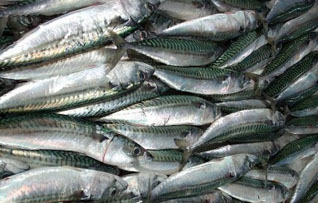 hs of on-again, off-again negotiations over mackerel quotas to stave off sanctions against the Faroe Islands, the Danish fisheries ministry is confirming the Faroese have reached a five-year quota agreement with the European Union and Norway.
hs of on-again, off-again negotiations over mackerel quotas to stave off sanctions against the Faroe Islands, the Danish fisheries ministry is confirming the Faroese have reached a five-year quota agreement with the European Union and Norway."There is an agreement between E.U., Norway and (the) Faroe Islands," said Morten Olsen, a spokesman for the ministry.
For several years, both the Faroes and Iceland have been fending off accusations of overfishing both herring and mackerel and putting stocks in the North Atlantic in danger. Both nations have refused to curb their fishing, however, leading to trade sanctions against the Faroes by the E.U. last fall, with threats of similar sanctions against Iceland. The ongoing debate has been dubbed the "Mackerel Wars" in the industry media.
The Faroes are officially a province of Denmark, which is part of the E.U., but for the purposes of these discussions the Faroes are considered to be an autonomous state.
Olsen said the agreement stipulates a total allowable catch for 2014 of 1.24 million metric tons (MT). That quota will be split, with 611,205 MT going to the E.U. A 15 percent portion, or 186,000 MT, according to Olsen, "has not yet been placed." There is no word yet on the remainder of the quota, and no other further details of the agreement have been released.
It is also unclear as of this writing what portion of the quota will go to Iceland, but a statement from the office of Maria Damanaki, European commissioner for maritime affairs and fisheries, noted the 12 March agreement "makes room for another Coastal State to join at a later stage."
"This is a significant day for international fisheries," Damanaki said. "This landmark agreement testifies to the E.U.'s commitment to sustainable fishing at home and abroad. The talks were long and intensive and given the potential risk to the stock, the stakes could not have been much higher. This agreement ensures the long term sustainability of this valuable stock. The door is still open for Iceland to join the other parties in the near future."
Also unresolved is the involvement of the World Trade Organization, which recently agreed to open an inquiry into the trade sanctions and whether they violated international trade laws.





